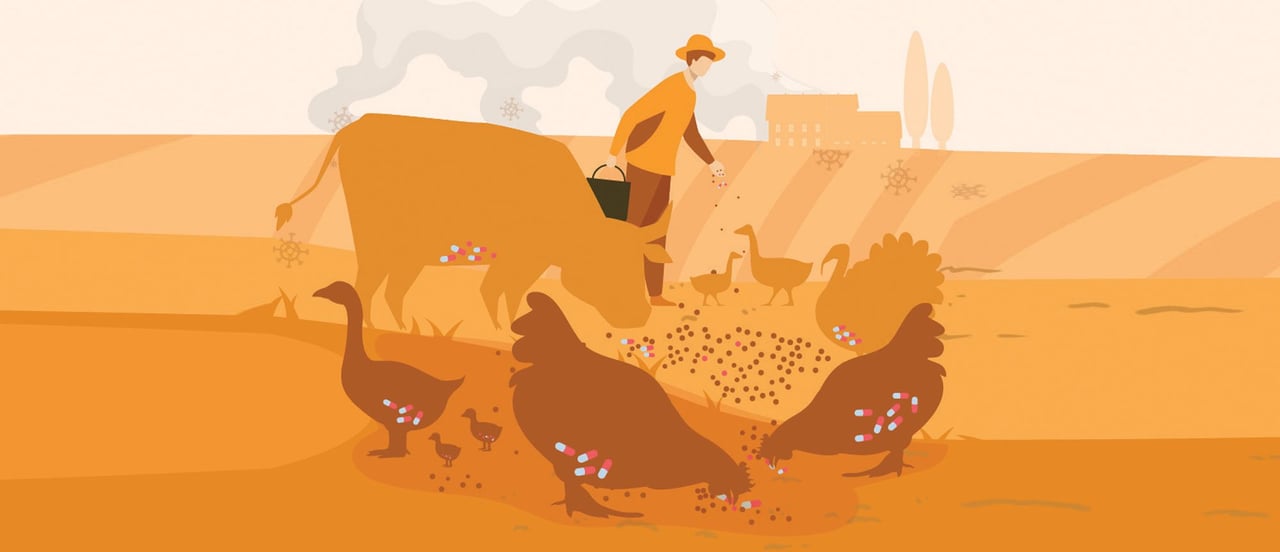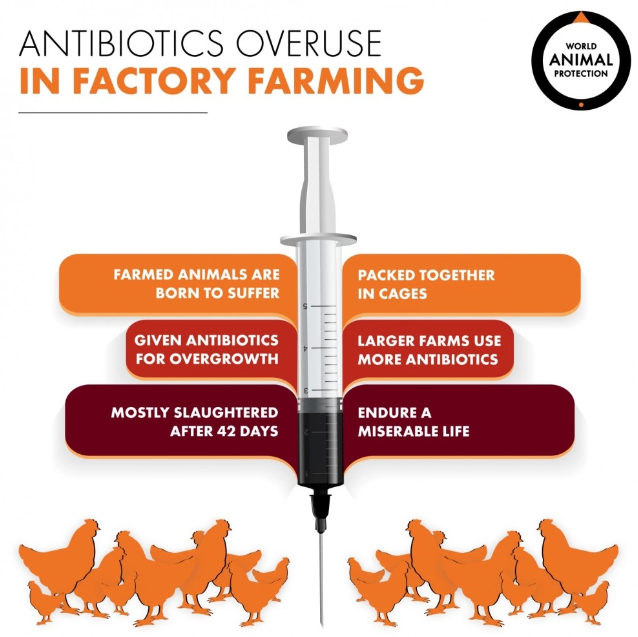The Silent Killer
World Animal Protection India film ‘The Silent Killer: Antimicrobial Resistance or Superbugs’ underscoring reality of antibiotic misuse in factory farming.

No future for factory farming
Roughly three-quarters of all antibiotics sold each year are marketed for use in farm animals rather than humans.
Antibiotics are used routinely to prop up low welfare practices on factory farms.
Their overuse contributes to the rapid rise and spread of bacteria resistant to medicines used to fight infections.
Businesses are exploiting and abusing animals on a staggering scale for the sake of profit.
People are dying. Antibiotics are becoming ineffective.
Already, more than 700,000 people die each year from superbugs where antibiotics are ineffective in treating infections.
Alarmingly, up to 10 million people are expected to die from superbugs each year by 2050. These will disproportionately affect the poorest countries in the world.
Thus propping up a system of suffering for food production. The health and wellbeing of animals, people and our planet are interdependent. The scale of suffering caused by factory farming is truly astounding.

This is despite the UN, the G20 and many world leaders recognizing superbugs as a global health emergency and calling for comprehensive actions in human medicine and agriculture to address the problem.
The health and wellbeing of animals, people and our planet are interdependent. Poor animal health and welfare in factory farming negatively affect food safety, our environment and climate. Ending factory farming will curb the rise of antimicrobial resistance (AMR) from farm animals and stop superbugs in their tracks. It will bring better animal health and welfare, healthier diets for people and a climate-safe and sustainable food system.
World Animal Protection India film ‘The Silent Killer: Antimicrobial Resistance or Superbugs’ underscoring reality of antibiotic misuse in factory farming.
On World Health Day, World Animal Protection launches a new report that lays bare the most damaging human health impacts linked to factory farming, and how these will only get worse as the demand for meat continues to grow in all corners of the world.
End Factory Farming
Factory farming is the largest source of animal cruelty in the world. Factory farming or intensive animal farming is the intense and confined farming of animals such as pigs, cows, and birds.
News
The unregulated use of antibiotics in poultry may have serious implications for developing economies, especially for India, the...
Blog
Farm animal welfare plays a vital role in sustainable agriculture, public health, and environmental preservation. The treatment of...
News
Rising Superbug Threat from Factory Farming: Study Shows One Million Deaths Annually and Projected Doubling by 2050